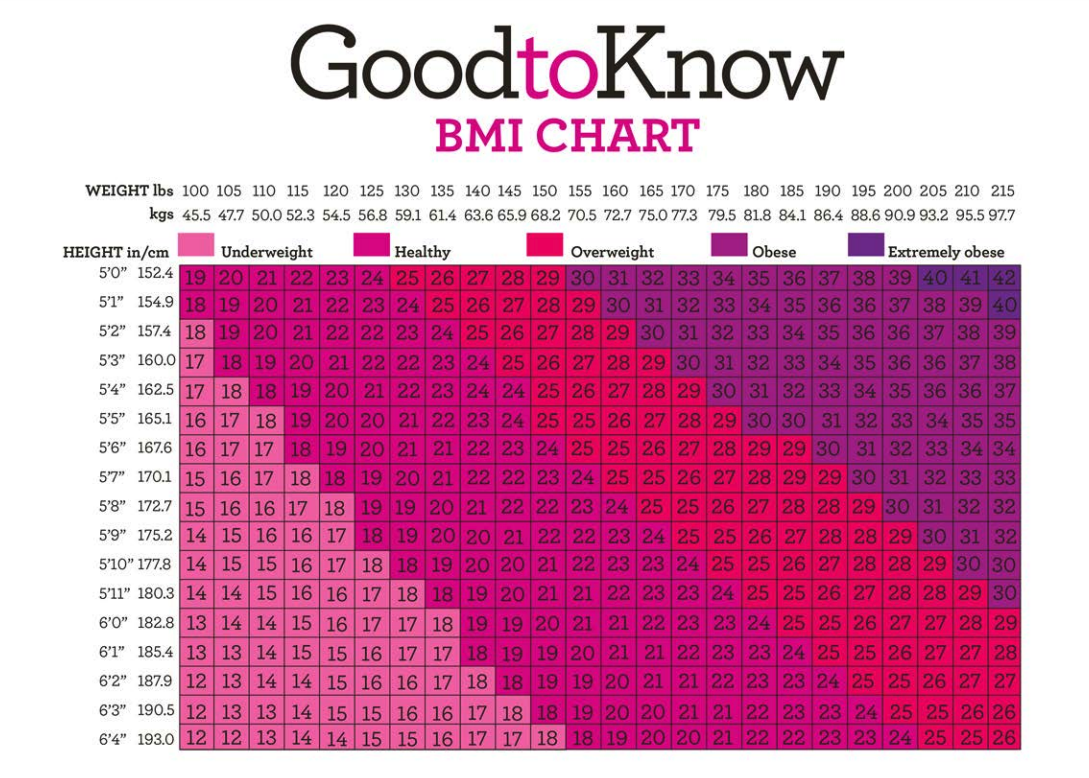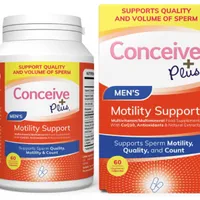How to increase sperm count: 15 scientifically-proven tips to boost male fertility


If you’re struggling to conceive, you may be wondering how to increase your sperm count naturally - or, how you can help your partner.
Perhaps you have already been trying to conceive with an ovulation calculator, and now wonder if male infertility might be the issue. If so, you’re not alone. Low sperm count, is estimated to affect 50% of men. The advice out there can be overwhelming and so many claiming to increase sperm count are just trying to sell you a product or service.
To advise on the best ways to increase sperm count, we talked to fertility expert Dr James Hopkisson, the UK medical lead for TFP Fertility Group. He told us: “The key to understanding your fertility is identifying the reasons for a low sperm count. Fine-tuning your health will help you make a few marginal gains to improve the health of your sperm. Keeping fit, losing weight, and making healthy lifestyle choices will improve your sperm count and sperm health.”
Key facts about sperm health
- After puberty, sperm are produced continuously in the testes
- Each sperm takes 10 weeks to make, studies show
- Fertility research suggests only 5-15% of sperm needs to be the "normal" shape to be classified as "fertile"
- Studies indicate there has been a 32.5% decline in European men's sperm count over the past 50 years
“The World Health Organisation constantly refines the definition of a low sperm count and it was last revised in 2021," says Dr Hopkisson. "Male fertility assessments will look at 4 parameters. These are the volume of ejaculate (how many millilitres is produced) as well as how many sperm is within it. We also look at motility (a measure of how many swim in the right direction) and finally, “morphology”. Morphology examines the shape of the sperm head to ensure it’s healthy.”
How to increase sperm count
1. Eat the right foods
Having a healthy diet isn't just about getting your five fruit and veg per day. It can also be about avoiding certain foods that have an impact on your sperm count and health. Following a "health-conscious" diet (with good intakes of vegetables, fruits, fish and whole grains) can improve sperm health, with less DNA damage, according to various studies of dietary patterns.
Use caution over soy-based products. Some studies indicate that foods containing soy products may affect your sperm count, though the evidence is conflicting and limited. However, another study conducted the following year, concluded soy has no effect on sperm count. If you're working out and relying on soy-based protein shakes to help you bulk up, it might be worth erring on the side of caution and reducing your intake.
It might seem comedic to focus on nuts when talking about the health of your testicles and sperm count, but nuts contain selenium. Selenium is an antioxidant, long known by various studies to be beneficial for sperm health.
A 14-week, clinical study suggests nuts as an easy way to boost sperm count. The promising results showed 60g per day of mixed nuts saw an increase of:
- 16% in sperm count,
- 4% in sperm vitality,
- 6% in sperm motility
2. Boost your vitamin and antioxidant intake
It's not always easy to get all the vitamins, minerals, and antioxidants that you need into your daily diet. While it's important to ensure your daily food and drink intake is healthy, taking a daily multivitamin is probably a good idea.
There is a range of vitamins and antioxidants that studies show are beneficial for increasing your sperm count.
- One 2020 study reveals zinc and copper are important for spermatogenesis (creating new sperm)
- A review of several, smaller studies found vitamin C, vitamin E and CoQ10 supplementation improves semen quality
- A 2021 study on couples receiving fertility treatment suggests supplementation of vitamins and antioxidants such as folic acid, CoQ10, zinc and selenium improved reproduction
It can be difficult to know how to choose from the bewildering choice of vitamins and supplements to increase your sperm count. If you are worried about your levels of vitamins and minerals, you can ask your doctor for some blood tests. These will rule out major deficiencies in some essential nutrients, like iron, zinc, or folate.
Dr. Hopkisson, an expert in reproductive health, explains "we give prenatal advice to women to take folic acid and vitamin D, but men are never told to take any supplements. This needs to change. Men need to take equal responsibility for their health. Antioxidant supplements might be beneficial but maintain a healthy cynicism. Make sure it doesn’t do harm and you have looked into the evidence behind it. You should also consider the cost of taking it. Think carefully whether there are better ways to improve your health."
Recommended providers of male fertility vitamin supplements
Wellman: Vitabiotics Conception 30 Tablets - View at Holland and Barrett
RRP: £10.99
Formulated to support male reproductive health, these supplements contain iron, magnesium, Vitamin B12 & Vitamin B6 - as well as zinc and vitamin C contribute to the protection of cells from oxidative stress.
Conceive Plus Men's Motility & Fertility Supplement 60 capsules - View at Amazon
RRP: £22
Promising to boost libido and improve sperm quality, these supplements also increase energy, vitality and serum testosterone.
3. Keep your balls cool
Dr. Hopkisson warns genital heat stress is possibly a bigger issue than men might realise. He told us, "We've all heard stories in the media of the effects of heated testicles. We even know of a few celebrity chefs whose fertility has been affected by being close to warm stoves. It's just one factor of male fertility, but it's crucial to look at the whole picture, to make those marginal gains in increasing your sperm count."
According to research on genital heat stress, there are a few scenarios either known or theorised to cause heating of the testicles. These ball-heating scenarios include:
- Sitting for extended periods at work or rest: one 2022 study showed professional drivers were particularly at risk from excessive testicular heat
- Keeping warm things, like computers, on your lap for long periods
- Wearing overly-tight underwear
- Hot baths for long periods
- Hot tubs and saunas should be used in moderation
Research by the University of Rochester Medical centre, theorised the male human body evolved to have the testicles outside the body to keep them cooler. That's why, when it's very cold, the scrotum scrunches up (contracts), to draw testicles closer to the body. The healthy human body is kept at a temperature of around 37C: too high for sperm production. Research indicates sperm production is optimal at 2-3 degrees centigrade lower than body temperature.
4. Watch your caffeine intake
While the effects of caffeine in a daily cuppa can get you started in the morning, it could be impacting your evening love-making.
It's not just those hot drinks that are to blame, though. Caffeinated soft drinks and energy drinks are also culprits and sometimes can have very high caffeine levels. Studies suggest caffeine intake from these drinks can reduce sperm concentration as well as your sperm count. Worse, it can also increase your testosterone levels to heights that affect sperm quality.
So, could giving up coffee be the key to increasing my sperm count? It's not clear that it will make a huge impact, but reducing your caffeine intake is never a bad idea. A large, Danish study of 2,554 healthy men found that moderate intake of caffeine didn't affect semen quality. However, intake of more than 800 mg a day (high intake) affected their total sperm count. Bear in mind, that the average cup of coffee is about 90mcg, whereas a double espresso from a coffee shop can be 125 mcg or more.
Caffeine is included in many carbonated (fizzy) soft drinks, coffee, tea, and even chocolate. Food packaging should always tell you which food or drink products contain caffeine. Add all your intake up and pay careful attention to what you consume, for your daily caffeine calculations.
5. Moderate your alcohol intake
While having a drink or two might help you get in the mood to romance your partner, alcohol could hinder your chances of conceiving. The NHS recommends only drinking up to 14 units of alcohol per week.
However, many people struggle to understand units. Advice from the NHS says "The number of units in a drink is based on the size of the drink, as well as its alcohol strength"
14 units is about 6 pints of beer or 10 small glasses of wine. Most bottles of alcohol will have a guide to how many units they contain, but if you're not sure, you can use an alcohol unit calculator to help you.
One Danish study, of 1221 men aged 18-28, revealed that even 5 units a week had adverse impacts on sperm. The most significant impact on sperm concentration, total sperm count, and abnormal sperm (poor morphology) was seen in men drinking more than 25 units a week. Alcohol intake also negatively impacted the participants' testosterone levels.
However, a larger study of 15 smaller studies, looking at 16,395 men found moderate consumption didn't have much of an impact on semen.
The impact of alcohol intake on sperm quality is controversial, but moderating your alcohol intake is a good idea in general. Alcohol intake can impact other aspects of your sexual health. Some studies suggest it can cause erectile dysfunction (difficulty maintaining an erection).
If you are worried about your alcohol intake, it's best to seek help quickly. Your GP can help you with reducing your intake or further treatment if you need it.
Helpful resources for moderating your intake of alcohol:
- Alcohol unit calculator by UK Charity, Alcohol Change
- Alcohol Aware UK, resources for alcohol addiction support
- NHS Alcohol Support
6. Stop smoking for to increase sperm count
Smoking isn't sexy and it's not good for your sex life, either. You may have ignored the warnings on the packets until now, but start paying attention if you want to increase your sperm count. There's a whole host of benefits to giving up cigerettes but you might not have even realised the impact smoking has on fertility.
Dr. Hopkisson, an expert in reproductive health TOLD US, "There are around 70+ chemicals in tobacco known to harm general health, so quitting smoking is one of the best things you can do to increase sperm count".
A review of 55 years of research covering smoking and sperm health concluded that smoking is known to be a "major factor" in causes of male fertility. The study review suggests smoking results in:
- Low semen volume
- Reduced sperm count
- Fewer motile sperm (swimming the right way)
Men from one study, who smoked more than 20 cigarettes a day, had a 22.4% reduction in sperm concentration compared with non-smoking men. A 2019 review of sixteen studies, looking at smoking in 10,823 participants, compared smokers and non-smokers' semen quality. Oligozoospermia (low sperm count) was highest in smokers. They also found significant defects in the head, neck, and tail of the sperm of smokers (poor morphology).
Smoking doesn't just affect your sperm, either. The study also found that smoking causes impotence (difficulty in maintaining an erection) in "approximately 120,000 young men (30 to 50 years old)" in the UK.
There is a range of products available for giving up smoking. The first port of call should be your GP, as the NHS can provide support and advice for quitting the smokes.
Giving up smoking will to increase sperm count and prolong your life, something that becomes even more important when you conceive and become a father.
There is a range of different products available to help you quit smoking. Nicotine replacement is just one of your options. Speak to your doctor for further advice and recommendations.
Recommended products and books for quitting smoking
NiQuitin Patches (Boots, £23.40) or Nicotinell Mint Gum (Boots, £19,00)
NiQuitin Clear Patch aims to relieve and prevents cravings and nicotine withdrawal symptoms, by providing a continuous release of nicotine. Should be used in combination with other support methods and products.
- View NiQuitin Patches (Boots, £23.40) or Nicotinell Mint Gum (Boots, £19,00)
Alan Carr's Easy Way to Quit Smoking Without Willpower - View at Amazon
RRP: £9.99
With more than 1660+ reviews and 4.5 stars, this international bestseller has helped millions kick the habit. Endorsed by plenty of celebrities, including Ellen DeGeneres, Ashton Kutcher, and Anthony Hopkins, it promised to help you quit without willpower.
Paul McKenna's Quit Smoking Today Without Gaining Weight - View at Amazon
RRP: £10
Paul McKenna aims to retrain your mind and body so that you no longer need cigarettes - and actually feel better without them - with this books and hypnosis download.
7. Get enough sleep
Lack of sleep is something you will be accustomed to once you're a new parent, but to increase sperm count, ensure you get enough shut-eye now. Eight hours is what's usually recommended for optimal health, but the quality of your sleep is important, too.
According to recent evidence, poor sleep is associated with lower sperm count, abnormal (low) testosterone levels, and erectile dysfunction (difficulty in maintaining an erection). A study of 667 Chinese men in 2021 revealed that sperm count was also negatively correlated with poor sleep habits. These include both restricted and excessive sleep duration, irregular sleep patterns, and going to bed too late.
To help you fall asleep and increase sperm count in your sleep, follow these healthy sleep tips:
- Reduce the use of electronics before bed as research indicates blue light from screens impedes sleep
- Make a do-to list for the following day to stop them running through your head
- Keep a regular sleep and wake schedule as there's evidence this helps your sleep system stay in a routine
- Listen to calming music or a podcast
- Invest in blackout blinds, earplugs and an eye mask
8. Reduce stress
It's common knowledge that stress, anxiety, and depression affect your general health, but you might not have considered the impact on your sperm count.
Fertility and reproductive health expert, Dr. Hopkisson, explains:" Stress and anxiety can definitely affect the fertility of both partners. It may even stop you from having sex. Think carefully about how to make your life less stressful. Sometimes the act of trying to conceive can cause stress itself. Optimising the timing of sex to coincide with an ovulation calculator can make sex feel prescriptive and a chore. That disappointment each month of a negative test can really affect your mood. Remember to focus on lovemaking for fun as well as conception."
Dr Hopkisson's advice that the stress of trying to conceive can impact semen quality is borne out by research. One study compared semen collected from men undergoing fertility treatment at two different stages. The second sample revealed a distinct reduction in sperm quality, suggesting a large impact from the emotional stress of treatment.
A study of 744 fertile men attending a prenatal clinic looked at stressful life events and sperm quality. This study suggested two or more stressful life events impacted:
- Concentration of sperm
- Motility of sperm (swimming in the right direction)
- Shape and health of the sperm (morphology)
There are a number of ways to deal with stress, so if you are worried about anxiety or depression, seek help from your GP. They will suggest various self-help methods and might suggest medication, where necessary. Your GP may also be able to refer you for therapy to help you with anxiety on the NHS.
9. Maintain a healthy weight
Unfortunately, your weight does impact your chances of conceiving. A large 2021 study looked at the sperm quality of 9,464 men attending a prenatal clinic. Results found that a high BMI had one of the greatest impacts on low sperm concentration and low total sperm count. A "healthy" BMI for men is between 18.5 and 24.9.
Another study, which looked specifically at BMI alone, determined that obesity impacts both:
- Sperm morphology (shape),
- Hormone levels (testosterone, prolactin, and luteinizing hormones, all crucial for making good quality sperm)
Men who have a high body mass index are also at risk of illnesses like diabetes, which one 2021 study suggests damages testicles, increases sperm abnormalities and impairs reproductive capacity.
To enlarge the chart below, open Goodto's BMI Calculator chart PDF.

10. Do more exercise
Your overall health doesn't just rely on a good diet and good body weight - it can be related to how sedentary of a lifestyle you lead, too. We all know that exercise is a vital part of a healthy lifestyle, but many of us find it hard to incorporate it into our daily routine.
Sedentary lifestyles and less active leisure pursuits (such as watching TV) studies show, lead to issues with sperm count. Though the evidence that exercise directly increases your chances of conceiving is limited, some studies demonstrate exercise improves semen quality.
Don't overdo it, though, as a major review of all the existing scientific literature on exercise suggests that over-exercise could have an adverse effect on your sperm quality.
If you want to get some exercise into your daily routine, you don't necessarily need to go to the gym. The NHS recommends you do "at least 150 minutes of moderate-intensity activity a week". Moderate-intensity exercises include riding a bike, taking a brisk walk, or even mowing the lawn.
To kick start your fitness routine and increase sperm count, try out the following:
11. Avoid environmental hazards
Dr. Hopkisson, reproductive medicine consultant for TFP Fertility Group, suggests that environmental toxins can be harmful, but those can affect sperm count are limited in the UK. He explains, "For the majority of us, our brilliant health and safety laws keep us safe from any workplace environmental toxins that might affect sperm quality."
However, it's important to be aware of some pollutants that might be present in our immediate environment and handle all hazardous substances with care. These include chemicals you might be using in DIY projects (e.g. for paint stripping), in the garden (pesticides) or even washing the car (detergents).
The pesticides (organophosphates) used in the UK are usually safe, but overexposure to these chemicals has been shown by recent studies (2021) to decrease sperm count. The evidence for this effect is very strong. A majority of the studies included in a major review of the evidence demonstrated that pesticides showed "significant associations between pesticide exposure and [poor] sperm parameters".
When handling dangerous substances, it's obviously important to keep yourself safe to increase sperm count. Follow the instructions on packaging at all times and, where necessary, wear protective clothing to protect your skin and lungs from harmful gas and liquid exposure. If you're worried you may have been exposed to a dangerous substance or gas, seek immediate medical attention. If you have experienced a chemical burn or experience difficulty breathing, do not hesitate to call the emergency services.
12. Avoid steroids unless prescribed by a doctor
Steroids, performance-enhancing drugs, can cause serious harm to your fertility.
Fertility expert, Dr Hopkisson, told us that not enough men using steroids are aware of how they can impact on sperm count. "I have treated men who have used steroids and it has caused them serious fertility issues. Men going to the gym and wanting that 'Love Island' body use anabolic steroids to get 'ripped'. Unfortunately, some of these men can't maintain an erection or steroids have damaged their sperm. Steroids can shrink your testicles permanently and completely halt sperm production".
According to a review on how steroids impact male fertility, steroid misuse can cause:
- Erectile dysfunction (difficulty in getting or maintaining an erection)
- Prostate enlargement
- Loss of libido (desire to have sex)
- Gynecomastia (development of breasts on a male chest)
- Low sperm count
- Abnormal sperm shape and size (morphology)
- Premature sperm death
The study concluded that the longer you abuse anabolic steroids, the longer they impact fertility.
If you are using steroids seek immediate medical advice before stopping. Do not stop, "cold Turkey", because stopping the medication abruptly can cause withdrawal.
For further advice, see the NHS page on anabolic steroid misuse.
13. Review prescription medications
There are some prescription medications that can impact your sperm count.
However, before you throw them away in horror, speak to your GP first. Firstly, all decisions about prescription medications must be taken in conjunction with qualified medical advice. Secondly, any effect on your sperm count caused by these medications may be too small to worry about. Your health must always come first, so please do not discontinue any medications based on this information.
Sperm count has been shown to be impacted by a few prescription medications, which include:
- Antidepressant medications (source: Journal of Human Reproduction, 2021)
- Chemotherapy drugs (source: Amzai et al, 2022)
- Painkillers such as morphine (source: Journal of Assisted Reproduction, 2022)
- Some medications for rheumatoid arthritis, like methotrexate (source: Jensen et al, 2021)
Dr. Hopkisson says that you should consult with your GP when you are thinking about trying to conceive. He told us, "Organise an appointment with a GP to do a full review of your medications. Most medications are absolutely fine to take when you're trying to conceive. If they impact your sperm count, your GP will help you find an alternative or refer you to a specialist. With a lot of medications, however, we just don't know how they could impact your sperm count. There isn't the research available on every drug."
14. Check your sexual health to boost male fertility
We've all had the talk about "the birds and the bees" and hopefully, a good sex education highlighting the importance of safe sex. Now that you're no longer taking precautions with contraception because you're trying to conceive a child, it's vital to keep sexually healthy.
An STI (sexually transmitted infection) check is a good idea, regardless of how long you've been with your partner. Getting an STI check - via the NHS - can rule out any issues that can affect male fertility.
Various infections can impact sperm count:
- Chlamydia can affect sperm count, according to the NHS
- Painful infection from Gonorrhoea can also reduce sperm count, caused by a relatively rare complication (source: NHS)
- Studies show HIV can cause infertility in men
It's not just STIs that can affect your fertility. Covid-19 infection has also been shown by studies to be a temporary and reversible cause of low sperm count. Another study, by the European Society for Human Reproduction, suggests "an assessment of semen quality should be recommended for men of reproductive age who are affected by COVID-19"
15. Take a penile health check
The basic mechanics for conceiving a baby might seem simple. However, your penis is a complex organ that can suffer from a range of conditions affecting conception. Some men are born with birth defects that can affect sperm count. Hypospadias, the most common penile defect, (where the urethra doesn't form properly in the womb) is just one issue that can impact male fertility, according to the British Medical Journal.
Dr. Hopkisson, an expert in fertility, has experience in treating common penile health complaints. He says, "If you have genital tract development issues, get a semen analysis. It's an easy process and it can be reassuring or an early flag for problems."
He recommends seeking early advice and support if you have a history of:
- Testicular torsion (twisting),
- Your testes didn't drop
- Other penile or testicular development issues
- Penile infections, like balanitis (see NHS advice for treatments)
If you know or suspect you could have a problem with your penis, consult your GP. They can refer you to NHS services for semen analysis. You can also seek private treatment options, should NHS waiting times be longer than you are happy with.
Low sperm count treatments
There are no evidence-based treatments for low sperm count itself, nor any medical solutions if sperm are damaged. Mechanical issues that affect ejaculation, like blockages, infections or swellings, can be treated with surgery or antibiotics.
Where sperm counts alone are the issue, fertility treatments (IVF or in-vitro fertilisation) that involve extracting eggs and sperm might be the only possible remedy. You only need one sperm cell "injection" per egg for some methods of laboratory-based reproductive medicine.
Diagnosing of low sperm count
Diagnosis of low sperm count will start with a semen analysis and this may reveal the cause of any fertility issues. Sperm analysis will check your sperm for:
- Sperm volume and concentration (how many ml is produced and how many are present)
- Motility (how the sperm swim)
- Morphology (correct sperm shape and size)
Over the last 20 years of Dr. Hopkisson's career, he says, there haven't been many new, evidence-based treatments to increase sperm count. He told us, "Treatment for low sperm count relies on working out exactly what the cause is. Some men might have hormone issues whereas others might have a problem with the delivery of sperm, caused by a blockage. Treating the hormonal issues can make a big difference, as might removing the source of a blockage. For men who don't produce enough sperm via samples, we can extract sperm, directly from the testicles."
Helpful links:
To understand more about the way that low sperm count is diagnosed and treatments, take a look at the UK's NICE guidelines on fertility treatment.
Fertility Foundation, UK Charity supporting couples undergoing fertility treatment
When to seek medical advice
If you have been trying for a baby for 6-12 months and haven't had any success, don't be afraid to seek help from your GP to increase sperm count.
You can ask for a review of your medications, a general check-up and blood tests to find any common causes of low sperm count. It's also worth ruling out sexually transmitted infections (STIs) at a local STI clinic.
Dr Hopkisson estimates low sperm count might affect 30-40% of couples in the UK and that there's a taboo surrounding male fertility. He told us. "Seek semen analysis sooner rather than later if you have a history of any penile or testicular development issues or infections. Get a good picture of your sexual health and ask your GP for a full "MOT". Fertility isn't just about your girlfriend or wife - men need to get better about talking about these things. Let's break down that stigma of talking about your testicles, sex and creating a family." - Dr Hopkisson, fertility and reproductive medicine clinician
Seeking medical advice for penile and testicular health
You can always seek help and referrals for advice if you have any concerns about your penis, testicles or general health.
If you experience any swelling, testicular pain or pain on ejaculation, you should seek immediate medical advice. Sudden severe, testicular pain can be a sign of testicular torsion (source: NHS) and is an emergency. Call 999 or attend Accident and Emergency immediately.
Make an appointment with your GP if you find any lumps or swellings in your testicles, or notice any changes in how they look or feel. MacMillan Cancer also offer advice on how to check your testicles.
Video of the Week
Parenting advice, hot topics, best buys and family finance tips delivered straight to your inbox.

Tannice Hemming has worked alongside her local NHS in Kent and Medway since she became a parent and is now a mum of three. As a Maternity Voices Partnership Chair, she bridged the gap between service users (birthing women and people, plus their families) and clinicians, to co-produce improvements in Maternity care. She has also worked as a breastfeeding peer supporter. After founding the Keep Kent Breastfeeding campaign, she regularly appears on KMTV, giving her views and advice on subjects as varied as vaccinations, infant feeding and current affairs affecting families. Two of her proudest achievements include Co-authoring Health Education England’s E-learning on Trauma Informed Care and the Kent and Medway Bump, Birth and Beyond maternity website.




